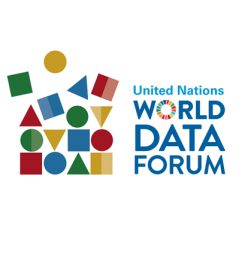Big data for sustainable development: What does it take to get to the next level?
22 Oct 2018 02:00h
Event report
The session was chaired by Mr Robert Kirkpatrick (Director of UN Global Pulse) and consisted of three presentations by members of UN Global Pulse and a panel discussion among data experts from different stakeholder groups.
Kirkpatrick used his opening remarks to point out that the world has changed with regard to its need for and use of data. Today, in the era of the sustainable development goals (SDGs), crucial data is collected continuously and at high speed and volume. It is often collected without our knowing by machines, and in some cases, owned by the private sector. In comparison, the data needed to measure the millennium development goals (MDGs) was less complex and varied.
He pointed out that there is a general sense that the ‘data revolution’ has been delayed when compared to expert opinion just a few years ago. One of the key points in addressing this is, according to Kirkpatrick, the need to build and rebuild trust among the public when it comes to data, in particular its collection, security, and privacy.
Data is often compared to oil as a resource, however, Kirkpatrick likened data to nuclear energy: there is a lot of potential to meet our needs but unshielded, it is dangerous, can leak, contaminate, and do harm.
Speaking next, Ms Derval Usher (Head of Office, Pulse Lab Jakarta) introduced two tools they developed, and shared some lessons learned. The Haze Gazer is a tool that allows the tracking and managing of forest and peat fires in Indonesia. The tool provides real-time insights on, for example, fire and haze hotspots, the location of the most vulnerable populations, and their response strategies. It combines, satellite images, with data on population density, and user-generated data. This allows the government and local authorities to understand what is happening and where to monitor and respond more effectively. Usher’s second example was the lab’s Cyclone Tool which ingests social media data and displays it in a way that feeds into decision making. She highlighted five lessons learned: (a) the need to identify data champions in the public sector to facilitate early adoption; (b) the importance of designing tools with the user in mind; (c) the advantage of flexible core funding; (d) the need for suitable regulatory frameworks; and (e) the importance of building sustainable and consistent partnerships.
Mr Martin Mubangizi (Data Science Officer, Pulse Lab Kampala (UN Global Pulse)) stressed the importance of scaling up big data projects to achieve the SDGs. He shared two examples. The first example is an artificial intelligence (AI) application that transforms the views of citizens aired on the radio into a form that can be used by governments and authorities to take better decisions. The application transcribes audio to text, then proceeds to data mine the text, and ultimately, generates insights that can be used by governments and other partners. Mubangizi explained that the tool was used by the Ugandan ministry of health to get citizens’ feedback on the quality of health service delivery and to provide early warning on disease outbreak. The second example used satellite images to map urbanisation in Kampala, including the spread of settlements and changes in settlement density. The tool is intended to support infrastructure planning and service provision. Building on his experience, Mubangizi highlighted four challenges for the application of these kind of tools: (a) lack of championship and ownership; (b) lack of awareness; (c) insufficient funding levels; and (d) absence of a suitable legal framework.
Moderated by Ms Paula Hidalgo-Sanchis (Manager, Pulse Lab Kampala (UN Global Pulse)), a panel consisting of Ms Heather Savory (Director-General for Data Capability, Office for National Statistics, UK), Ms Jeanine Vos (Head of SDG Accelerator, GSMA) and Ms Elena Alfaro (Global Head of Data & Open Innovation, BBVA Group) discussed opportunities and pitfalls of big data for sustainable development. Throughout the discussion, panellists emphasised a number of key lessons, and echoed some of the previous points made. In summary, five key points emerged from their discussion.
- It is crucial to move from pilot projects to applications at scale, and this can only be achieved through co-operation and by avoiding doubling of efforts.
- It is crucial to start from assessing the needs of governments and other users of data. Applications need to be fit for purpose.
- Trust building and awareness raising need to take place, as both are crucial to overcome challenges early on and to move to at scale application.
- Data privacy needs to be ensured. Past experiences have shown that standards of privacy need continuous re-assessment.
- Working with the private sector is crucial. But these partnerships need a long-term and sustainable approach. It is too late to initiate partnerships when the crisis has hit.
Kirkpatrick closed the panel by comparing the guiding principle that should apply to the future work of data scientists and policy makers to the Hippocratic oath. In other words, the main principle should be: do no harm. This, according to Kirkpatrick, includes avoiding harmful practices and actively preventing potential future harm.
Related topics
Related event

